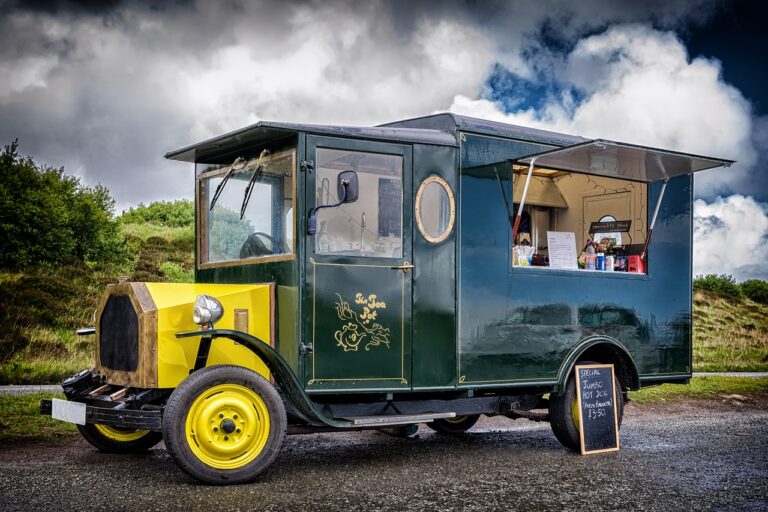Innovations in Sustainable Coffee Bean Transportation
bet book 250.com, radhe exchange login, yolo247 club login:Innovations in Sustainable Coffee Bean Transportation
Coffee is one of the most popular beverages in the world, with millions of people relying on their daily cup of joe to kickstart their day. However, the journey of coffee beans from the farm to your cup is a complex process that often involves long distances, multiple modes of transportation, and significant environmental impacts. In recent years, there has been a growing focus on finding sustainable solutions for transporting coffee beans, as the coffee industry seeks to reduce its carbon footprint and support environmentally friendly practices.
From innovative packaging to eco-friendly transportation methods, the coffee industry is embracing a range of innovations to make the transportation of coffee beans more sustainable. Let’s take a look at some of the latest trends and developments in sustainable coffee bean transportation.
Packaging Innovations
One of the key challenges in transporting coffee beans is ensuring that they arrive at their destination in the same high-quality condition in which they were harvested. Traditional packaging methods, such as jute sacks, can be bulky, heavy, and not always the most environmentally friendly option. To address this issue, many coffee producers are turning to innovative packaging solutions that are not only more sustainable but also help to preserve the freshness and flavor of the beans.
One such innovation is the use of compostable or biodegradable packaging materials. These materials break down naturally over time, reducing the environmental impact of coffee bean transportation. In addition to being more sustainable, compostable packaging can also help to protect the beans from moisture and air, ensuring that they retain their quality during transit.
Another packaging innovation is the use of reusable containers. By using containers that can be returned and refilled, coffee producers can reduce waste and lower their carbon footprint. Reusable containers are not only more environmentally friendly but can also help to lower transportation costs and improve supply chain efficiency.
Eco-Friendly Transportation Methods
Transporting coffee beans over long distances can have a significant impact on the environment, particularly when traditional transportation methods such as trucks and planes are used. To reduce carbon emissions and support sustainable practices, many coffee producers are exploring eco-friendly transportation methods for moving their beans from the farm to the roastery.
One innovative approach is the use of electric or hybrid vehicles for transporting coffee beans. These vehicles produce fewer emissions than traditional diesel trucks, helping to reduce the carbon footprint of coffee transportation. By investing in electric or hybrid vehicles, coffee producers can demonstrate their commitment to sustainability and environmental stewardship.
Another eco-friendly transportation method is rail transportation. Trains produce significantly fewer emissions than trucks and planes, making them a more sustainable option for moving large quantities of coffee beans over long distances. By incorporating rail transportation into their supply chain, coffee producers can reduce their carbon footprint and support a more environmentally friendly coffee industry.
In addition to electric vehicles and rail transportation, some coffee producers are exploring alternative modes of transportation such as bicycles or cargo ships. By embracing innovative transportation methods, coffee producers can reduce their reliance on fossil fuels and demonstrate their commitment to sustainability.
Low-Impact Logistics Solutions
Logistics plays a crucial role in the transportation of coffee beans, with complex supply chains often involving multiple stops and handoffs along the way. To reduce the environmental impact of coffee transportation, many coffee producers are investing in low-impact logistics solutions that prioritize efficiency, sustainability, and transparency.
One such solution is the use of blockchain technology to track the journey of coffee beans from the farm to the cup. By using blockchain, coffee producers can create a transparent and secure record of each step in the supply chain, ensuring that beans are sourced ethically and sustainably. Blockchain technology can also help to reduce waste, improve traceability, and support fair trade practices within the coffee industry.
Another low-impact logistics solution is the implementation of Just-In-Time (JIT) inventory management. By optimizing inventory levels and streamlining supply chain processes, coffee producers can reduce waste, lower transportation costs, and minimize their environmental impact. JIT inventory management can help to improve efficiency, reduce lead times, and enhance sustainability across the entire coffee supply chain.
By embracing low-impact logistics solutions, coffee producers can improve the efficiency and sustainability of their transportation practices, while also enhancing traceability and transparency within the coffee industry.
Sustainable Partnerships and Collaborations
Collaboration is key to driving innovation in sustainable coffee bean transportation. By forming partnerships with other stakeholders in the coffee supply chain, such as growers, roasters, and retailers, coffee producers can work together to implement sustainable transportation practices and reduce their environmental impact.
One example of a sustainable partnership is the Coffee and Climate Initiative, which brings together coffee producers, researchers, and policymakers to address the challenges of climate change in the coffee industry. By sharing knowledge, resources, and best practices, stakeholders in the Coffee and Climate Initiative are working to develop innovative solutions for sustainable coffee bean transportation and production.
Another example of a sustainable partnership is the Sustainable Coffee Challenge, a collaborative effort involving over 160 organizations from across the coffee sector. By setting ambitious sustainability goals and sharing insights and resources, members of the Sustainable Coffee Challenge are driving positive change in the industry and working towards a more sustainable future for coffee production and transportation.
By forming partnerships and collaborations, coffee producers can leverage the expertise and resources of other stakeholders to drive innovation, reduce their environmental impact, and support sustainable practices in coffee bean transportation.
The Future of Sustainable Coffee Bean Transportation
The future of sustainable coffee bean transportation is bright, with new innovations and technologies emerging to help coffee producers reduce their carbon footprint and support environmentally friendly practices. By investing in compostable packaging, eco-friendly transportation methods, low-impact logistics solutions, and sustainable partnerships, coffee producers can demonstrate their commitment to sustainability and environmental stewardship.
As consumers increasingly prioritize sustainability and ethical sourcing in their purchasing decisions, the coffee industry is under pressure to adopt more sustainable practices throughout the supply chain. By embracing innovations in sustainable coffee bean transportation, coffee producers can meet this demand, reduce their environmental impact, and support a more sustainable future for the industry.
FAQs
Q: What are the key challenges in transporting coffee beans sustainably?
A: Some of the key challenges in sustainable coffee bean transportation include reducing carbon emissions, minimizing waste, improving efficiency, and ensuring the quality and freshness of the beans during transit.
Q: How can coffee producers reduce their carbon footprint in transportation?
A: Coffee producers can reduce their carbon footprint in transportation by investing in eco-friendly vehicles, using alternative transportation methods such as rail or bicycles, optimizing supply chain processes, and collaborating with other stakeholders to drive sustainability.
Q: What are some examples of sustainable packaging materials for coffee beans?
A: Sustainable packaging materials for coffee beans include compostable or biodegradable materials, reusable containers, and innovative packaging solutions that help to protect the quality and freshness of the beans during transportation.
Q: How can coffee producers improve traceability and transparency in the supply chain?
A: Coffee producers can improve traceability and transparency in the supply chain by using blockchain technology to track the journey of coffee beans, implementing Just-In-Time inventory management, and forming partnerships with other stakeholders to share knowledge and resources.
Q: What is the role of sustainable partnerships and collaborations in driving innovation in coffee transportation?
A: Sustainable partnerships and collaborations play a key role in driving innovation in coffee transportation by bringing together stakeholders from across the supply chain to share insights, resources, and best practices for reducing the environmental impact of coffee transportation.
As the coffee industry continues to prioritize sustainability and environmental stewardship, innovations in sustainable coffee bean transportation will play a crucial role in driving positive change and supporting a more sustainable future for coffee production and consumption. By embracing these innovations and working together to find sustainable solutions, coffee producers can reduce their carbon footprint, improve efficiency, and support a more environmentally friendly coffee industry.







